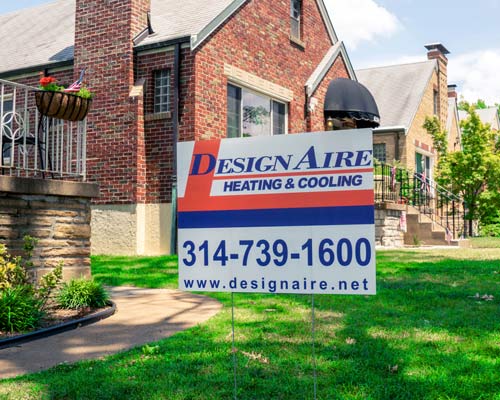
When it comes to choosing a heating system for your St. Louis home, the “heat pump vs. furnace” debate is a common one. Each system offers unique benefits, but the best choice depends on factors like energy efficiency, your budget, and the Midwest climate. To help you make the best decision, we’ll take a closer look at the differences between heat pumps, gas furnaces, and electric furnaces, highlighting their strengths and how they perform in St. Louis’s climate.
What Is a Heat Pump?
A heat pump is a highly energy-efficient system that transfers heat from the outside air into your home during colder months. In warmer weather, it works as an air conditioner by removing heat from your home. This dual functionality makes heat pumps ideal for homes that experience milder climates.
Common types of heat pumps include air source heat pumps and geothermal heat pumps. Air source heat pumps are a popular choice because of their affordability and effectiveness in moderate temperatures. Geothermal heat pumps, while more expensive to install, offer incredible energy efficiency by utilizing the earth’s stable underground temperatures.
However, in colder climates like St. Louis, electric heat pumps may struggle to provide sufficient warmth during freezing conditions. To address this, many homeowners use heat strips or opt for a dual fuel system that pairs a heat pump with a gas furnace for maximum heating efficiency.
What Is a Furnace?
A furnace is a heating system that generates warm air by burning fossil fuels such as natural gas or oil, or by using electricity. Gas furnaces are the most common in St. Louis due to the availability of natural gas, which is both cost-effective and reliable. These systems use a heat exchanger to efficiently convert fuel into heat, making them an excellent option for colder climates.
Electric furnaces are another option, but they tend to have higher energy costs compared to gas furnaces. Oil furnaces, while less common today, are still in use in some older homes. Unlike heat pumps, furnaces are not all-in-one systems and require a separate air conditioner for cooling.
St. Louis Weather and Heating Needs
The Midwest experiences a wide range of temperatures, with hot summers and cold winters. This variability makes it essential to choose a heating system that balances performance and energy efficiency. While heat pumps are ideal for milder climates, a gas furnace may be better suited to handle St. Louis winters. The seasonal energy efficiency ratio (SEER) of a system can help you determine its overall efficiency in both heating and cooling.
Heat Pump vs. Furnace: Key Differences
Energy Efficiency
Heat pumps are renowned for their energy efficiency because they transfer heat rather than generate it. Geothermal heat pumps, in particular, can significantly reduce energy costs. However, gas furnaces provide consistent heating even during extreme cold, making them more efficient in colder climates.
Cost of Operation
Heat pumps are cost-effective during moderate weather but can become expensive in freezing temperatures due to the need for supplemental heat strips. Gas furnaces, on the other hand, benefit from lower natural gas prices in St. Louis, making them a more affordable option for winter heating.
Versatility
Electric heat pumps serve as both a heating and cooling system, eliminating the need for a separate air conditioner. Ductless heat pumps are also available for homes without ductwork. Furnaces, however, require a separate air conditioning unit to cool your home during the summer.
Air Quality and Safety
Heat pumps improve indoor air quality since they don’t burn fossil fuels, reducing the risk of carbon monoxide exposure. Furnaces, especially gas and oil models, require proper ventilation and regular maintenance to ensure safety.
Dual Fuel Systems: A Perfect Blend
For St. Louis homeowners looking to maximize efficiency, a dual fuel system combines the benefits of a heat pump and a gas furnace. During milder weather, the heat pump handles heating needs. When temperatures drop, the system switches to the gas furnace for reliable warmth. This approach offers the best of both worlds and is an excellent choice for the Midwest climate.
Additional Considerations for St. Louis Homes
When upgrading your heating system, it’s important to think about how it integrates with other aspects of your home. For example, pairing your system with a tankless water heater can improve overall efficiency. Regular drain cleaning and HVAC maintenance are also essential for keeping your heating system in top shape.
Choosing the Right System for Your Home
If you prioritize energy efficiency and want a system that doubles as an air conditioner, a heat pump or geothermal heat pump might be the best choice. However, if you’re looking for consistent heating during harsh St. Louis winters, a gas furnace or dual fuel system is likely a better fit. Electric furnaces can also be an option, but their higher energy costs may be a drawback.
Conclusion
The choice between a heat pump and a furnace ultimately depends on your specific needs and the unique climate of St. Louis. While heat pumps work well in milder climates, gas furnaces or dual fuel systems provide the reliability needed for colder winters. No matter which option you choose, proper furnace installation within St. Louis and regular St. Louis furnace maintenance are key to ensuring your heating system runs efficiently for years to come.

